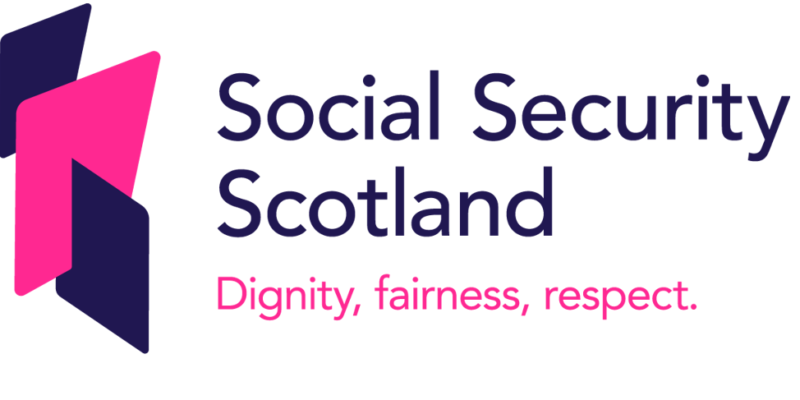
Professor Paul Knight OBE is Social Security Scotland’s Chief Medical Advisor. In this blog he explains Social Security Scotland’s different approach to delivering benefits in Scotland with person-centred values at its heart.Preview (opens in a new tab)
Since the formation of Social Security Scotland in 2018, our overarching ambition is to deliver a social security system in Scotland that is embedded in the values of dignity, fairness and respect.
These are not words that are simply mentioned on our website or printed in marketing materials. They are the bedrock of our entire approach to the delivery of social security for the people of Scotland. A person-centred approach which puts human rights at its heart.
We have worked hard to design and deliver our service by engaging with people with diverse lived experience of the social security system, alongside input from stakeholders that campaign tirelessly to protect the rights of people across society.
Delivering disability benefits differently
An example of our person-centred approach in practice is how we deliver our disability payments which is dramatically different to those delivered by the UK Government via the Department for Work and Pensions (DWP).
Currently we deliver three disability payments – Child Disability Payment, Adult Disability Payment and the recently launched Pension Age Disability Payment. These benefits are not means tested and provide extra money to help with the costs that disabled people and people with long term health conditions can face, like more expensive transport and higher energy bills.
Unlike the DWP, who have a medical approach to identifying eligibility, we are less interested in an individual’s diagnosis. Instead, we want to know how the person’s disability or condition affects their day-to-day life.
We also don’t use private-sector assessments to make decisions on disability benefit applications. Instead, we directly employ nurses, social workers, social care workers, occupational therapists and physiotherapists as part of our specialist health and social care team. The team is not there to re-diagnose a person’s condition but instead use their expertise to make sure we have the clearest and most complete picture possible of a person’s needs while also enabling them to tell their own story.
Supporting information for applications can also be provided by a wide range of professionals, it doesn’t need to be a GP. Community mental health workers, teachers, physiotherapists, day care centre managers amongst others, understand the impact that disabilities can have on daily life. They may be aware of something the person has been coping with for a long time, something that has become so normal for them that they might not have even put it in their application.
Getting supporting information directly from people making applications is the fastest route to achieving a decision. Often people have the information we need at home – things like prescriptions, appointment letters and care plans. Again, unlike the DWP, Social Security Scotland can also support someone to get supporting information for their application.
What’s more we have a network of colleagues working in local communities across Scotland, available to give one-to-one support with their application.
Support for unpaid carers
It’s also important to highlight that many people eligible for disability benefits may be getting supported by a family member, friend or neighbour who could be eligible for financial help too.
Unlike its predecessor, Carer’s Allowance which is delivered by the DWP, Carer Support Payment, delivered by Social Security Scotland, is available to most carers in full-time education. The payment has also been designed to work better for carers in paid work, including looking at the average earnings of carers to check if they are eligible.
We don’t simply rebadge benefits to deliver the same in Scotland. Working with the Scottish Government, we are dedicated to making the changes that will make a difference to people in Scotland through a very different social security system than they are potentially used to.
Social security is a basic human right, a public service that anyone may need at any time in their life. We’re here to help people get everything they are entitled to delivered with dignity, fairness and respect.
But don’t just take my word for it, our recent client survey found that 85% of respondents who had been in contact with a member of staff felt staff listened to them, 83% said staff made them feel comfortable, while 89% said staff treated them with kindness.
And that’s the opinion that matters most to us.
Please share details within your networks on the support available from Social Security Scotland. We currently deliver 15 benefits including support for disabled people, carers, low-income families, young people looking for work or those requiring financial assistance to help pay for a funeral.
To find out more visit here.
 Professor Paul Knight has over 30 years’ experience working with older people and was formerly a consultant geriatrician at the Glasgow Royal Infirmary. He was responsible for the creation and ongoing operation of Social Security Scotland’s Health and Social Care team.
Professor Paul Knight has over 30 years’ experience working with older people and was formerly a consultant geriatrician at the Glasgow Royal Infirmary. He was responsible for the creation and ongoing operation of Social Security Scotland’s Health and Social Care team.
